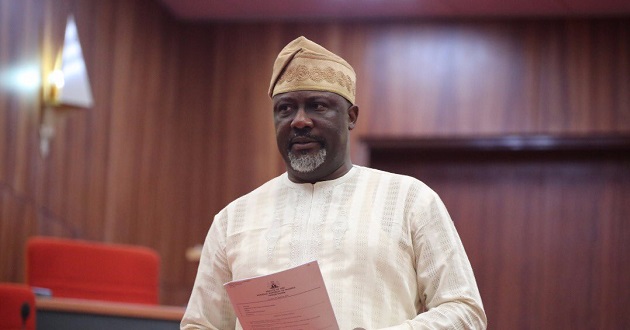Politics
Police finally bow to court order, release Senator Melaye

After apparent rejection of court orders, the Nigerian Police has finally let go the senator representing Kogi West, Dino Melaye.
Melaye had been in the custody of the Nigerian Police Force for over two weeks but was eventually set free afternoon on Tuesday.
A Federal Capital Territory High Court had earlier on Monday granted the senator bail. It was, however, alleged that police ignored the order of the court even after the senator reportedly met his bail conditions.
However, on Tuesday, supposedly following public condemnation of the Force, the police is said to have changed its stand and let the senator go home.
Police had last December surrounded the Abuja home of Melaye in a bid to arrest him over claims that he masterminded the shooting of one Sgt. Danjuma Aliu in Kogi State.
Read also: Why Tinubu is very bitter with Obasanjo- PDP
Melaye had initially refused to surrender and even lied that he was not around. However, when it was clear to him that the security operatives were not in any haste to vacate his home, the senator had no option but surrender himself.
The senator soon after surrendering was rushed to police clinic in Garki, Abuja, after he slumped.
The Police later filed before an FCT High Court charges against Melaye, accusing him of illegal obstruction of lawful arrest, resisting arrest and accusing the erstwhile Inspector-General of Police, Ibrahim Idris, of planning to inject him with poison.
Join the conversation
Support Ripples Nigeria, hold up solutions journalism
Balanced, fearless journalism driven by data comes at huge financial costs.
As a media platform, we hold leadership accountable and will not trade the right to press freedom and free speech for a piece of cake.
If you like what we do, and are ready to uphold solutions journalism, kindly donate to the Ripples Nigeria cause.
Your support would help to ensure that citizens and institutions continue to have free access to credible and reliable information for societal development.
























